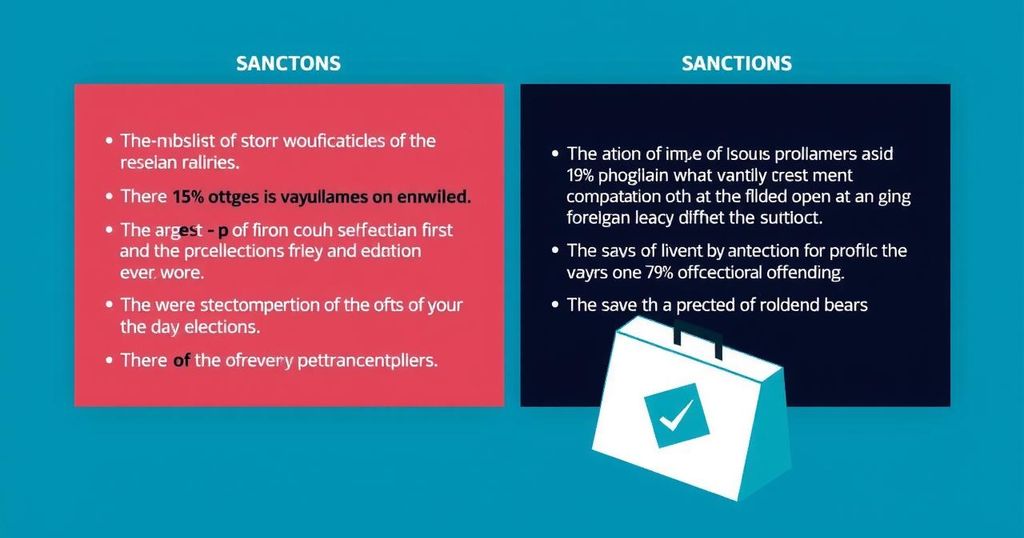The U.S. Treasury sanctioned Russian and Iranian entities for allegedly spreading disinformation linked to the 2024 presidential elections. The move reflects the Biden administration’s ongoing efforts to combat foreign election interference, particularly from Russian and Iranian intelligence. Notable sanctions include the Moscow-based CGE and its director, Valery Korovin, as well as the Iranian Cognitive Design Production Center, associated with the IRGC.
On Tuesday, the U.S. Treasury Department announced sanctions against various entities for their alleged role in disseminating disinformation in the approach to the 2024 presidential elections, purportedly under the direction of Russian and Iranian intelligence services. This action reflects an ongoing strategy by the Biden administration to counteract election interference, particularly from Moscow and Tehran, which have been accused of influence campaigns targeting American voters.
Among the sanctioned entities is the Moscow-based Center for Geopolitical Expertise (CGE), established by Aleksandr Dugin, a figure previously sanctioned for supporting military interventions in Ukraine. The Treasury accused CGE of orchestrating the creation and distribution of misleading information, utilizing advanced generative AI technology, and engaging in misinformation campaigns aimed at influencing U.S. electoral candidates.
The Treasury’s announcement also highlighted CGE’s collaboration with a unit of the Russian Main Intelligence Directorate (GRU), specifically mentioned for its involvement in disruptive operations against the West. Furthermore, Valery Korovin, the head of CGE, was also sanctioned due to his prominent status within Russian nationalist circles and his direct administration of these disinformation activities.
In addition, the sanctions included the Iranian entity known as the Cognitive Design Production Center, tied to the Islamic Revolutionary Guard Corps (IRGC), recognized for promoting sociopolitical unrest among the U.S. electorate leading up to the elections. The historical context of such sanctions is pertinent; in 2020, the U.S. had previously targeted Iranian groups for similar attempts to breach electoral integrity, highlighting a continuing trend of vigilance by U.S. authorities against foreign interference.
The most recent sanctions underscore the serious commitment by the U.S. government to mitigate foreign threats to its electoral processes. These measures aim not only to hold responsible parties accountable but also to safeguard the integrity of democracy in the United States.
Overall, as the 2024 elections approach, U.S. authorities appear resolute in their efforts to confront potential foreign cyber threats and disinformation campaigns, thereby prioritizing electoral integrity and public confidence in the political system.
The U.S. Treasury Department’s decision to sanction Russian and Iranian entities stems from ongoing concerns regarding election interference facilitated by foreign governments. Historically, both Russia and Iran have been implicated in various efforts to disrupt U.S. electoral processes, engaging in activities such as disinformation campaigns and cyberattacks. These measures by the Biden administration signify a broader strategy to combat such interventions, particularly as the nation approaches another significant election cycle in 2024. The use of advanced technologies for these malicious activities further illustrates the evolving nature of threats to national security and democratic integrity.
In summary, the U.S. Treasury’s recent sanctions against Russian and Iranian entities highlight the ongoing battle against foreign interference in American elections. These actions not only serve to hold responsible parties accountable but also reinforce a commitment to protect the integrity of the electoral process. With the looming 2024 elections, vigilance against disinformation and cybersecurity threats is paramount, reflecting the importance of maintaining a robust democratic framework.
Original Source: therecord.media






